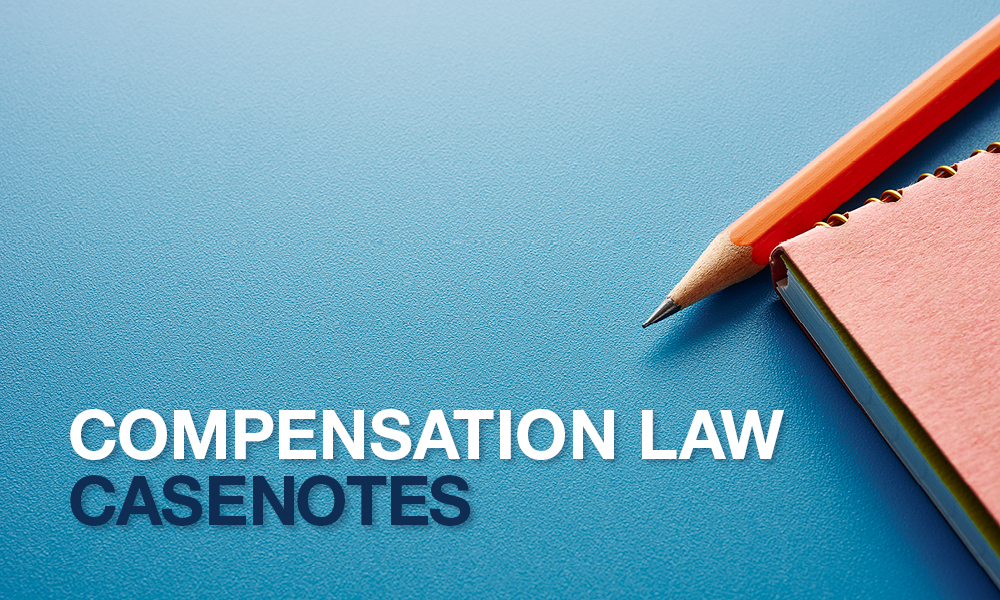“Smile – you’re on camera!”
It is hard to go anywhere these days – shopping centres, places of business, sports fields – without seeing a sign along these lines. It is a little reminder that security cameras are everywhere, and a warning that anyone thinking of doing something untoward should think again.
We mostly (if reluctantly) put up with this, understanding an unfortunate need for security cameras in our daily lives. Of course, we are also fortified with assurances that our image will be used only for security purposes, and will be deleted as the camera runs through its cycle; but what if it isn’t?
Karen Hepp had the unfortunate experience of finding out. Hepp, a television journalist in Philadelphia who has earned a reasonable amount of fame through her work, visited a convenience store back in 2018 and like everybody else had her image captured.
Unlike everybody else, however, her image wasn’t deleted in the camera’s cycle. Hepp found out from co-workers that her smiling face was appearing on dating sites, advertisements for erectile dysfunction treatments and in indecent threads on Reddit (an online discussion forum) as well as being shared on Imger (a photo sharing website). Hepp had not consented to any of this.
Hepp took legal action against Facebook1 (Reddit and Imger were found not to be within the particular court’s jurisdiction) under local right of publicity statues and the common law. The difficulty for her was that s230 of the Communications Decency Act 1996 provides an immunity for internet service providers, by mandating that the providers are not publishers of information provided by another content provider.
However, the act also contains limitations, including specifying that the act does not limit or expand laws relating to intellectual property, and the Court of Appeals for the third circuit held that Hepp’s statutory right to privacy was a form of intellectual property. This ruling was founded on the fact that Hepp had created a valuable interest in her image, including significant financial investment on her part.
In other words, her image had value and her right to privacy was very similar to a trademark. Thus, the decision of the lower court to dismiss Hepp’s claim was overturned and her claim will now move forward.
In Australia, things may unfold differently, based on the High Court’s recent confirmation that platforms such as Facebook are publishers of content on those platforms, even if that content is posted by third parties.
The decision, Fairfax Media Publications Pty Ltd v Voller2 dismissed an appeal from an earlier decision of the New South Wales Court of Appeal.3 In doing so, the High Court found that the owners of the subject Facebook pages encouraged the posting of comments, facilitated the posting of those comments and so became publishers of those comments.4
Looked at together, the two cases are instructive for law firms and their clients. Owners of Facebook pages (and similar platforms) need to be aware that they may be considered publishers of third-party content, and that carries real risk. In addition to being held liable for any defamatory comments, they may be subject to actions around infringement of intellectual property rights. The propensity for internet users to post content and images lifted from the internet means that this can be a significant issue.
A note of caution: both cases discussed here merely opened the way for further litigation; neither decision was finally determinative of the matters at hand. It is also worthy of note that the finding of the High Court was predicated largely due to the media outlets encouraging comments in order to increase website traffic and thus advertising revenue. Whether the decision would hold liable owners of non-commercial pages who made no effort to increase comment remains to be seen.
In light of these decisions, law firms should be cautious in, and assiduously monitor, what they allow on their pages, and encourage clients to do the same.
Shane Budden is a Special Counsel, Ethics, with the Queensland Law Society Ethics and Practice Centre.
Footnotes
1 Hepp v. Facebook, Inc., 465 F. Supp. 3d 491 (E.D. Pa. 2020).
2 [2021] HCA 27.
3 For discussion of that decision, see Your Facebook page, your problem?, QLS Proctor, 24 July 2020.
4 For discussion of the High Court’s decision, see High Court holds media liable for defamatory comments on Facebook, QLS Proctor, 9 September 2021.











Share this article